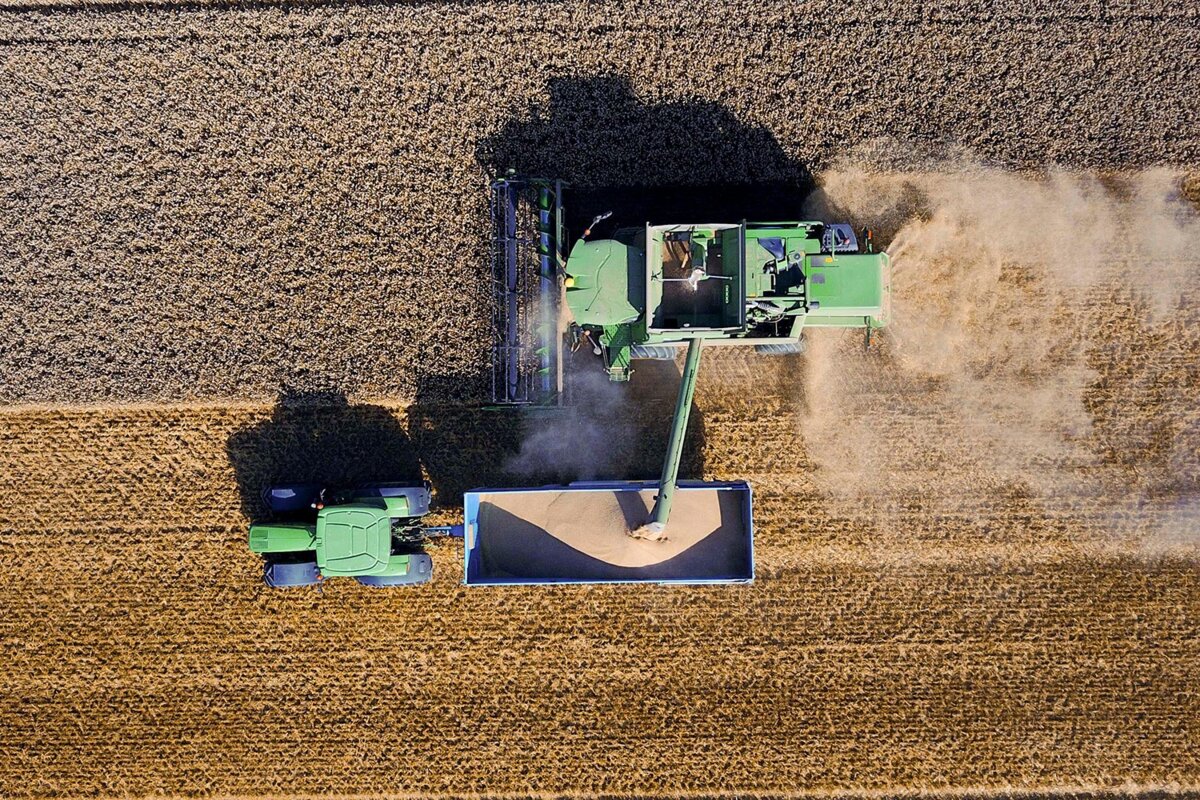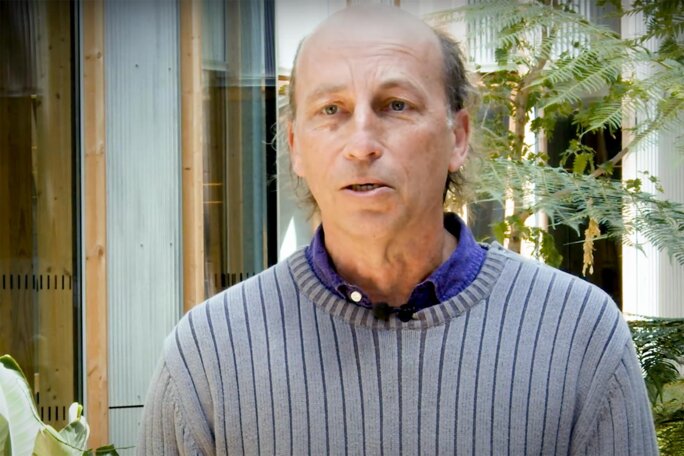In a 2021 essay entitled L’Expropriation de l’agriculture française (published in France by Les Éditions du Croquant), political scientists Andy Smith and Matthieu Ansaloni examine the increasing intensification of French agriculture, dominated by the interests of the owners of large farmlands and the agribusiness, and sketch an alternative model.
Amid the continuing protests by French farmers, Mediapart turned to Andy Smith, a director of research with France’s National Centre for Scientific Research (CNRS) and based at political sciences school Sciences Po Bordeaux (Centre Émile-Durkheim), for his insight into the profound reasons behind the malaise within the country’s agricultural sector. In the interview below with Fabien Escalona, he sets out the grievances and their causes, and argues for a “sort of Marshall Plan at the scale of the EU” to bring about a change in the “excessively productivist model” that has dominated since the 1960s.
-------------------------
Mediapart: You have spent many years studying agricultural capitalism. How has such a large protest movement come about?
Andy Smith: The anger has been simmering for quite a while. Several reasons are involved; the rise in diesel fuel prices, which was the spark of the current movement, the difficulties created by animal diseases in certain regions, complaints over the weight of [administrative] procedures, resistance to the European [Union’s] Green Deal, and the problem of the prices paid to farmers. That last motive is often lost in what is talked about, but it’s a central issue.
In a general manner, the profession of farmer suffers from a loss of sense. Farmers explain that they are faced with contradictory demands. Their road map is blurred – on the one hand they are asked to produce a maximum amount, while on the other “environmental services” are expected of them.
Mediapart: You demonstrate that since the 1960s a productivist model has been reproduced, which exhausts both the workers and the land.
A.S.: The heart of the problem lies in the asymmetrical relations between the producers, the processors [editor’s note: who transform raw produce], and the distributors of agricultural products. The Egalim law was supposed to lead to more equity between the actors of the sector, but it was very insufficient. Incidentally, the state has a structural bias in favour of the processors, who are major exporters to international markets.
The current model pushes most farmers into producing basic products of weak added value, like cereals and meat, and to produce them more and more. This model was strengthened by the liberalisation of the Common Agricultural Policy in the 1990s. Being unable to hope that prices per unit rise, farmers enter into a production race to make up for it with [higher] quantities. To do that, they have to invest, and get into still greater debt.
The level of debt among farmers has never been as high as it is today. It is a source of anxiety and financial problems, a vicious circle driven by a whole lot of actors ancillary to agricultural production. I’m thinking of those who are happy to sell machines, and also banks who take full part in this dynamic, beginning with the Crédit agricole.

Enlargement : Illustration 1

Mediapart: French Prime minister Gabriel Attal has come up with a certain number of propositions in response to the farmers’ protests, aimed at defusing the movement. Do you find them convincing?
A.S.: Attal, his government and the French president appear to be very convinced that with “simplification” measures they will be able to unpick numerous environmental regulations that bother supporters, within the profession, of intensive farming.
In doing so, it will simply worsen the effects on the quality and quantity of water and, more generally, the negative impact of this sector on climate change. A strengthening of the polarization between that form [intensive farming] of agriculture and all those who promote the environment will clearly be one of the effects of Gabriel Attal’s speech.
At the same time, what is just as striking in this marathon speech is the absence of two things. Firstly, there is no precise commitment on the part of the state to overturn the balance of strength between agricultural producers and the large buyers of their produce on the question of agreeing prices. Secondly, neither was there a word about structural public aid aimed at getting farmers out of debt in exchange for a modification, over time, of their objectives and practices.
Mediapart: There is much suffering and inequality in the agricultural world. Yet in professional elections, the national federation of farmers’ unions, the FNSEA, has a majority, whereas it supports the fundamentals of this dysfunctional model. How can that be explained?
A.S.: The leaders of that union do indeed participate in reproducing the current model. Because they believe in it and because among farmers some do well, notably those who invested at the right moment and who are not anxious. That’s the case of some cereal growers who can be found on the board of the FNSEA. But the union is outflanked on its Right by the Coordination rurale [union], which encourages it to radicalise its rhetoric, unrealistically to my mind.
The support for the FNSEA also comes from the fact that belonging to it gives access to certain services, to be given support for singular requests. To be a member of it is also to position oneself on the side of the powerful, even when one criticises part of its line in private. One must not forget the social nature of the agricultural world. When you step out of line, it gets known, so much so that some prefer to keep a low profile rather than distinguishing themselves.

Enlargement : Illustration 2

Moreover, the FNSEA, which is dominant historically, benefits from professional election rules that need to be reviewed. They allow, according to the ‘the winner takes all’ principle, for the domination of a département with sometimes weak majorities. [Editor’s note: the "elections" concern the chambers of agriculture, which represent the many different actors of the agricultural sector, including elected representatives of farmers’ unions, and are mostly concerned with the agricultural activities of a single département (county)].
Finally, alternative offerings are not straightforward. The [leftwing] Confédération paysanne [union] is perceived as being too close to the ecologists. In a milieu that is very polarised on the issue, that can be off-putting.
Mediapart: Despite the alternation of rightwing and leftwing governments, the productivist model has persisted, despite all its failings. One could surmise that, given the small demographic weight of farmers, it would have been possible to bring in reforms while taking limited electoral risks.
A.S.: Beyond farmers, in the strict definition of that profession, there are a whole lot of interests and employees who are linked to their production, whether that be in processing activity or seeds. In some départements, that makes up a lot of people. The electoral risk is therefore not so negligible.
We also know the concern that can be caused by farmers’ demonstrations, potentially violent. The timidity of the state over intervening is added to by the symbolic dimension of the farmer who “nourishes”, which clearly resonates well beyond rightwing circles. The Socialist Party never confronted it. For example, during the presidency of [François] Hollande, [agriculture] minister Stéphane Le Foll changed very little and didn’t touch upon the domination of the FNSEA.
Mediapart: Powerful interests want to reproduce this current model. What sort of alliance could present an alternative?
A.S.: It would require an enormous amount of political work, in any case. But, in theory, it could be knotted between organic farmers and farmers in disadvantaged regions, mountainous, far from markets, who would disassociate themselves from the FNSEA. In terms of contents [of a programme], the improvement of the social condition of farmers, so that it is possible to live with dignity from the profession, should be placed at the centre.
One cannot conceive that the model that has dominated since the 1960s can be changed without a sort of Marshall Plan at the scale of the European Union.
Indirectly, the increase in strength of the Coordination rurale [rightwing union] demonstrates that what the FNSEA proposes does not have sufficient echo in the agricultural world. Among its members and supporters, some could have mobilised on the Left at one time, but the offer from that side is still too weak or unsatisfactory to attract them.
Mediapart: What would be the major principles of an alternative model?
A.S.: One must act in an interventionist manner on the relationships between producers, processors and distributors. If the state does not take a clear stand against the liberalisation of prices, the power of the processors and distributors is such that market relationships will never be rebalanced. The experience of administered prices had perverse effects in the 1970s, but today we have more expertise to regulate markets. It’s worth the effort.
Secondly, action must be taken over indebtedness, with a recovery plan to help farmers, including by conditioning the support to leaving the excessively productivist model. One cannot conceive that the model that has dominated since the 1960s can be changed without a sort of Marshall Plan at the scale of the European Union [EU]. It must be matched with a right of access to the European domestic market in order to prevent unfair competition. Today, with the rules of the WTO [World Trade Organization], Brazil can send chickens raised in conditions that would be banned in the EU.
The reprogramming of agricultural policies must in any case be accompanied by protection, to give back a sense to the profession and ensure that the reorientation of the model is largely supported.
Mediapart: You argue that an alternative model of agriculture could not truly ‘co-exist’ with the current model. Why?
A.S.: This idea is employed by the FNSEA in face of organic agriculture and short food supply chains. In fact, it is always the producers from within the intensive model who dominate the regulation of their side of agriculture, and they affect the prices of everyone, all the more given that the state strongly supports them. They therefore finish by gobbling up the others.
The co-existence is a kind of myth, which involves too many contradictions. One can take the example of short food supply chains in [the south-west département of] the Dordogne. They are relatively well developed, but are not protected from intensive farmers who have opened shops pretending to live from that model, whereas they come from the model of intensive farming.
-------------------------
- This interview was originally conducted in French, the text of which can be found here.
English version by Graham Tearse


